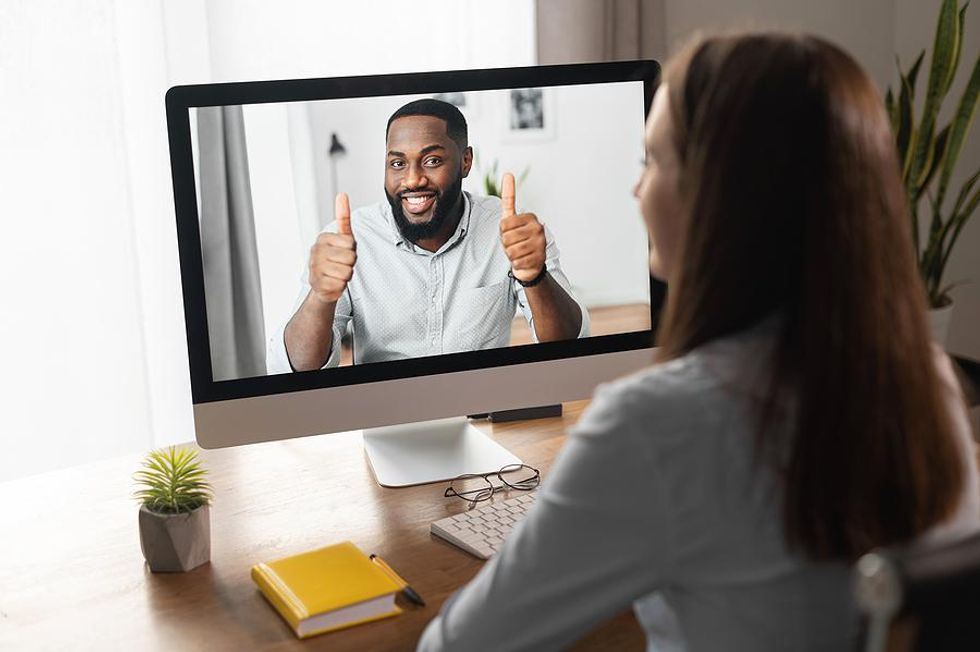
It started well. James was delighted with the approval of his "ask" to work with a leadership coach. The coach he selected had a great background, including key executive roles with top-tier companies. James was on track to be promoted and was also on a high-potential list for a senior-level position. James had recently received comments about giving more attention to listening before giving his opinions. He knew he could work on that. But in his mind, others knowing James was working with a coach would signal to everyone that he was on his way up and increase his visibility in the company.
A few weeks into working together, and far from gratifying James’ ego, the coach kept asking James to see things from different perspectives and committing time to hold conversations with his coworkers about what he could do to become a better peer and leader. James told his coach how busy he was, and besides, he wasn't paid to make friends but to make good decisions quickly. A month later, James was shocked when his coach said "full stop" because they had made no progress on the work that brought them together a couple of months before. Worse, James knew others would ask about what happened and why. Working with a coach could have been a powerful way for James to boost his executive career opportunities. But if coaching could be his answer, what question should James have asked?
Coachability

Bigstock
The first and most important question to ask yourself is, "Am I coachable?" No matter how much you want to achieve something. No matter how experienced and talented the coach you hire, the situation will become frustrating and disappoint everyone if you are not coachable. Working with someone who is not coachable is the number one reason coaching engagements fail, as was the case with James. Coaches also know it is the number one reason to decline accepting someone as a client.
Looking Into The Mirror That Is You

Bigstock
You are the expert on yourself, not the coach. To get the maximum benefits from coaching, you have to invest time before working with a coach to know how you will show up and follow through on what you say you will do. Whether you're looking at career coaching, life coaching, executive coaching, or any other coaching engagement, keep the phrase COACH in mind. It will guide you to the things you need to pay the most attention to before beginning a partnership with a coach.
"The most important relationship in your life is the relationship you have with yourself. Because no matter what happens, you will always be with yourself" –Diane von Furstenberg
Candor. You have to be honest with yourself before being honest with anyone else. Spending hours and hours in deep soul-searching is unnecessary, nor crafting perfect answers. But getting clear on what motivates you and what gets in your way will help you know how successful you can be with a coach. Consider some or all of these questions: What do you want to focus on with a coach? Why does it matter enough for you to commit to bringing about a change? How does it matter to others who may be family, friends, coworkers, or people you've not met yet? What could cause you to become un-coachable or disrupt your efforts? Remember, honesty with yourself leads to being open with your coach.
Openness. Results through coaching depend on having mutual trust. You are not obligated to tell a coach everything on your mind. Still, you must share enough information to make a successful coaching partnership possible. A coach will listen, asks questions, and, with your consent, may provide observations and occasional insights from their own experiences when and if it could be helpful. Together, you and your coach will create and maintain a "space" where open conversations occur. Some questions to ask yourself to see if you are ready to be open include: Do you listen fully to questions before forming your response? Have you changed your mind on anything important to you because you looked at it from a different point of view?
Action. Though many of your conversations with your coach will be enjoyable and inspiring, results do not happen just because of those conversations. No tangible progress will occur until you have goals or steps supported by intentional actions outside of the coaching sessions. The coach can help you put a plan together and offer new ideas and resources, but the coach will not give you answers or do the work for you. Going back to your mirror, when you've set goals and achieved them in the past, what did you need to have in place for success to happen? What will you share with your coach about this that would help them help you? Are metrics you track yourself, having an accountability partner, or both, the best way for you to track progress on your actions? Being clear about what it takes for you to build momentum and sustain it is a valuable insight for you and your coach to work from to convert your plans to actions.
"All progress takes place outside the comfort zone" –Michael John Bobak
Commitment. Picturing the future is fun, but it takes more than initial excitement and a plan to get there. And this is especially true if what you want is outside your comfort zone. If you have ever pushed beyond your comfort zone before, you know how unsettling it can be. All manner of doubts, distractions, and temptations appear. Turning around and going back to what is comfortable is the easy thing to do. What gets you through this will be your commitments, where your candor meets your actions. Sustain those actions, and together, you and your coach will get you to those better outcomes you've said were important to you and the people around you. To create firm commitments, get curious about what could slow you down or stop you. Think of a time when things did not come easily to you. What sustained you to keep going and not settle for what was easy? If you became distracted or began to doubt yourself, what would it take to get back on track? When will the resources (time, money, energy) you're investing to reach your goals start signaling you to stop? Give yourself the gift of awareness here and share it with your coach.
Humility. People are captivated by the "aha moments" in coaching where someone visibly lights up because of unexpected insights, inspirations, or realizations. It is almost magical. The coach asks a powerful question, there is a pause, and then suddenly everything shifts. Here's the thing: the power is not in the question; it is in that moment when your humility steps forward. Humility is not about meekness or submission. Quite the opposite. It is having the courage to let go of what is holding you back. Humility is a gateway you have to pass through to get to the best things that coaching will bring out in you. Here are a couple of questions to ask yourself to see if you're ready to engage with humility: How do you react when another person suggests you may have been wrong, made a mistake, or could have done something in a better way? Does it matter whether that person is a peer, a boss, or reports to you? When was the last time you asked for help because you didn't know what to do?
COACH-able. You will know you've chosen something powerful for coaching when you feel the weight of the Candor, Openness, Action, Commitment, and Humility you will have to carry and still see it all as being worth taking along on your journey. When your coach asks you questions to gauge your coachability, don't be surprised. Instead, surprise them with how well you've prepared yourself for your work together.
- 11 Tips For Transitioning Into A Leadership Role - Work It Daily ›
- 21 Inspirational Career Quotes For Professionals - Work It Daily ›
- How Executives Can Improve Their Communication Skills - Work It ... ›
- 8 Best Questions To Ask In A Job Interview - Work It Daily ›

 Bigstock
Bigstock Bigstock
Bigstock Bigstock
Bigstock


